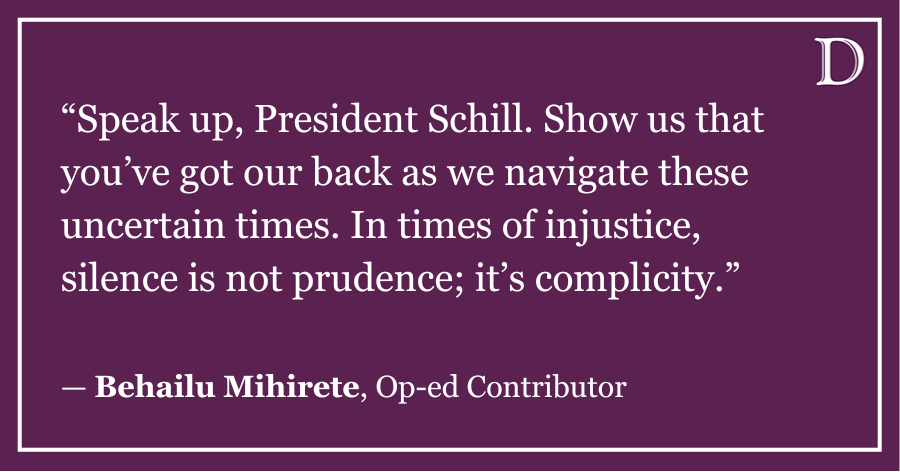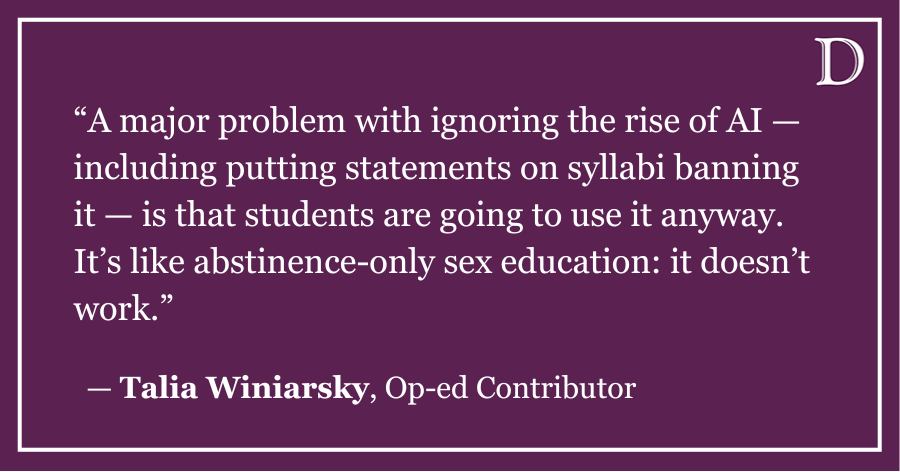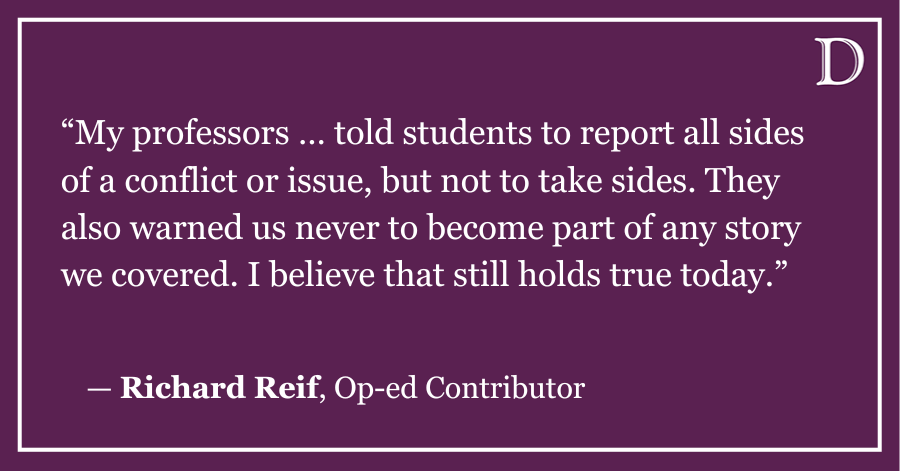Every morning, anxiety and dread take over as I open my phone. Doomscrolling takes on a whole new meaning when every headline announces what latest aspect of science and research the Trump administration is targeting.
Without fail, I cannot make it through emails, LinkedIn updates and text messages without discovering a colleague whose grant has been terminated, a connection seeking a new job and a list of websites and data that have been erased from federal agencies. The list goes on and on and, to put it bluntly, I am exhausted.
To family and friends, it was no surprise that I studied biology in college, and even less surprising that I decided to work in wildlife conservation. My childhood heroes included Jane Goodall and Steve Irwin; growing up in the mountains of Colorado instilled a deep love for the environment and the animals that call it home. Spending my days exploring the outdoors fostered a lasting belief that humans must learn to coexist with wildlife and protect the natural resources that our shared livelihoods depend on.
Now, I am in the last months of my Ph.D. program in the anthropology department at Northwestern. My dissertation research focuses on developing conservation tools for endangered wildlife at risk of extinction.
To say I am passionate about my research is an understatement; my desire to protect this planet, its forests and wildlife gets me out of bed every morning. This is also why I pursued a doctorate from NU, a university at the forefront of scientific research nationally and globally.
Last week, President Trump released his discretionary budget for the 2026 fiscal year, which proposed major cuts to science.
Some highlights include a 40% cut to the National Institutes of Health, a 56% cut to the National Science Foundation, a 55% cut to the Environmental Protection Agency and a 25% cut to the National Oceanic and Atmospheric Administration (NOAA). Perhaps the most personal attack by the FY 2026 budget is President Trump’s commitment to eliminating funding for the “Green New Scam”— his disheartening nickname for the Green New Deal.
While Trump’s discretionary budget is a suggestion, the proposed reductions undermine the United States’ scientific operations, and Congress must now decide whether to support or reject these suggestions. Disguised as savings for the taxpayer, I see them as a failure to invest in the future. These suggested cuts will weaken the next generation of early career researchers and jeopardize the United States’ ability to lead scientific discovery and innovation worldwide.
Northwestern has so far received 98 stop-work orders, 51 grant terminations as well as no payments for NIH grants since March. What these numbers do not highlight is the magnitude of graduate students whose funding has been stripped from underneath them, and whose aspirations of making a difference in this world are deemed unworthy by our country’s leaders.
While I am grateful to have finished my research — research that would have been impossible without federal funding — now what? How can I stay in a country that discredits science? Even if I wanted to stay, where could I continue to do research? Without reliable federal funding, job stability is impossible.
Many of my fellow graduating colleagues and I are now applying to jobs abroad where scientific inquiry and innovation are not only supported, but valued. Meanwhile, universities and advisors are exercising caution about admitting new graduate students, uncertain whether they can promise the funding needed for students to succeed.
For those in their first or second year, the situation is just as bleak: without federal investment, most labs cannot function, and neither can the careers of the graduate students they support. Without meaningful change, the United States risks losing an entire generation of scientists, as early-career researchers find themselves with no place to go.
I recently shared these sentiments with Illinois Congressional staffers when I went to Washington D.C. for the AAAS Catalyzing Advocacy in Science and Engineering Workshop.
Testimonials, like the one I shared here, are what legislators want to hear. Congress loves to use personal stories during debates to highlight why continued investment in scientific research — and the graduate students who are its backbone — is necessary. Losing an entire generation of American researchers will be catastrophic for this nation, no matter what side of the aisle your elected official is on.
It is imperative to advocate for higher education and research right now. I encourage faculty, graduate and undergraduate students to speak up and share why federally funded research is important. I urge readers to contact Senator Tammy Duckworth, Senator Dick Durbin and Representative Jan Schakowsky, or your home state representatives, to ask for their continued support of scientific research and share your stories.
Tabor Whitney is a Northwestern University 6th year graduate student in the Ph.D. program for anthropology. She can be contacted at [email protected] If you would like to respond publicly to this op-ed, send a Letter to the Editor to [email protected]. The views expressed in this piece do not necessarily reflect the views of all staff members of The Daily Northwestern.


















